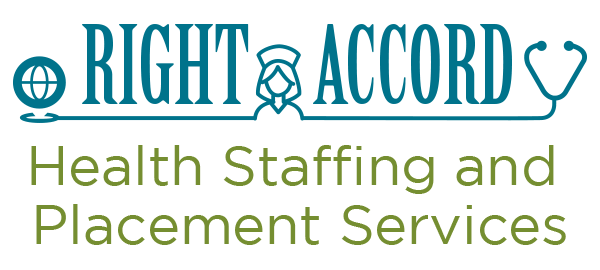The Vital Role of Temporary Nurses in Times of Need

In times of crisis, one profession steps up to support the overwhelmed healthcare system and provide crucial assistance: temporary nurses. These unsung heroes play a vital role in bridging the gap and ensuring that patients receive the care they need.
With their specialized skills, adaptability, and willingness to go above and beyond, temporary nurses are the backbone of crisis response.
Introduction
Whether it’s a natural disaster, a pandemic, or a sudden surge in patient numbers, temporary nurses are ready to answer the call. They bring expertise from various specialties, ensuring that healthcare facilities can provide the necessary care for all patients, regardless of their condition.
Temporary nurses are adept at quickly integrating into new teams and environments, making them an invaluable resource during emergency situations. Their ability to adapt, stay calm under pressure, and provide compassionate care is a testament to their professionalism and dedication.
During challenging times, the demand for temporary nurses surges, highlighting their essential role in crisis response. Their contributions not only alleviate the burden on the existing healthcare workforce but also bring a sense of stability and reassurance to patients and their families.
In this article, we’ll explore the vital role of temporary nurses in times of need, and how their expertise and resilience make a significant impact on patient care and outcomes.
The Importance of Temporary Nurses in Times of Need
Temporary nurses play a crucial role in times of need, filling the gaps in healthcare systems and ensuring that patients receive the care they require. These highly skilled professionals bring a wealth of experience from various specialties, enabling healthcare facilities to provide comprehensive care to all patients, regardless of their condition.
In crisis situations, such as natural disasters or pandemics, the demand for healthcare services often exceeds the capacity of the existing workforce. This is where temporary nurses step in, providing much-needed relief and support. Their ability to quickly integrate into new teams and environments allows for a seamless continuation of patient care, minimizing disruptions and ensuring that no patient is left behind.
Moreover, temporary nurses bring a fresh perspective and innovative ideas, contributing to the overall improvement of healthcare delivery during times of crisis. Their expertise and adaptability enable them to navigate challenging situations with ease, providing quality care while maintaining a calm and reassuring presence.
Ultimately, the presence of temporary nurses during times of need brings a sense of stability and reassurance to patients and their families. Knowing that there are dedicated professionals on hand to provide the care they need can alleviate anxiety and foster a sense of trust in the healthcare system.

The Role of Temporary Nurses in Crisis Situations
Temporary nurses play a multifaceted role in crisis situations, ensuring that healthcare facilities can effectively respond to the increased demand for care. Their responsibilities encompass a wide range of tasks, all aimed at providing quality patient care and maintaining the smooth operation of healthcare facilities.
First and foremost, temporary nurses provide direct patient care. They assess patients’ conditions, administer medications, perform treatments and procedures, and monitor vital signs. Their expertise allows them to handle a variety of cases, from routine care to critical emergencies, ensuring that patients receive the appropriate level of care at all times.
In addition to direct patient care, temporary nurses also play a vital role in coordinating care among different healthcare professionals. They collaborate with doctors, therapists, and other members of the healthcare team to develop comprehensive care plans and ensure seamless transitions between different stages of treatment. This coordination is especially crucial in crisis situations when the healthcare system is under immense pressure.
Temporary nurses also take on leadership roles during times of crisis. They provide guidance and support to less experienced staff, ensuring that everyone is working towards the common goal of delivering optimal patient care. Their experience and ability to remain calm under pressure make them natural leaders in high-stress environments.
Furthermore, temporary nurses contribute to the wider healthcare community by sharing their knowledge and expertise. They participate in training programs, mentor less experienced nurses, and actively engage in professional development opportunities. This commitment to continuous learning and growth helps improve the overall quality of patient care and ensures that healthcare facilities are well-prepared for future crises.

Benefits of Hiring Temporary Nurses During a Crisis
Hiring temporary nurses during a crisis brings a multitude of benefits to healthcare facilities and the overall healthcare system. These benefits extend beyond immediate relief and have a lasting impact on patient care and outcomes.
One of the key benefits of hiring temporary nurses is the ability to quickly scale up the healthcare workforce. Temporary nurses can be rapidly deployed to areas with the highest demand, ensuring that no patient is left without the care they need. This scalability is crucial in crisis situations where the demand for care can spike unpredictably.
Temporary nurses also bring specialized skills and expertise to the table. Their diverse backgrounds and experiences allow them to handle a wide range of cases, including those that may be outside the scope of regular nursing staff. This flexibility enhances the overall capacity of healthcare facilities to provide comprehensive care to all patients, regardless of the complexity of their conditions.
Moreover, hiring temporary nurses can alleviate the burden on existing healthcare staff, preventing burnout and ensuring that quality patient care is maintained. By sharing the workload, temporary nurses enable regular nursing staff to recharge and maintain their own well-being. This, in turn, contributes to a more sustainable healthcare workforce in the long term.
Temporary nurses also bring fresh perspectives and innovative ideas to the healthcare system. Their ability to adapt quickly to new environments and situations allows for the implementation of best practices and the adoption of new technologies or approaches. This continuous improvement benefits both patients and the healthcare system as a whole.
Challenges Faced by Temporary Nurses in Crisis Response
While temporary nurses play a vital role in crisis response, they also face unique challenges that must be addressed to ensure their well-being and effectiveness in providing patient care.
One of the primary challenges is the need to quickly adapt to new teams and environments. Temporary nurses are often deployed to unfamiliar healthcare facilities, where they must integrate seamlessly into existing teams. This requires effective communication, teamwork, and the ability to navigate different organizational cultures and practices.
Another challenge is the emotional toll that crisis situations can take on temporary nurses. Dealing with high-stress environments, traumatic experiences, and a constant sense of urgency can lead to burnout and compassion fatigue. Therefore, it is crucial to provide adequate support and resources to help temporary nurses cope with the emotional demands of crisis response.
Additionally, temporary nurses may face logistical challenges, such as finding temporary accommodation and transportation to the crisis site. These practical considerations must be addressed to ensure that temporary nurses can focus on their primary responsibility of providing quality patient care.
Lastly, temporary nurses may encounter resistance or skepticism from existing healthcare staff, especially if they perceive temporary nurses as a threat to job security or as individuals who lack familiarity with the local healthcare system. Building trust and fostering positive relationships between temporary nurses and regular staff is essential to ensure effective collaboration and the delivery of optimal patient care.
Training and Qualifications Required for Temporary Nurses in Crisis Response
Temporary nurses must possess the necessary training and qualifications to effectively respond to crises and provide quality patient care. While the specific requirements may vary depending on the nature of the crisis and the healthcare facility, certain core competencies are essential.
First and foremost, temporary nurses must have a valid nursing license or certification in the jurisdiction where they will be providing care. This ensures that they meet the minimum standards for nursing practice and have demonstrated competency in the field.
In addition to the basic nursing qualifications, temporary nurses should have experience in the relevant specialty areas. For example, in a pandemic response, temporary nurses with experience in critical care or infectious diseases would be highly sought after. This specialized knowledge allows temporary nurses to handle complex cases and provide the appropriate level of care.
Furthermore, temporary nurses should undergo specific training related to crisis response. This training may cover topics such as disaster management, infection control protocols, and emergency procedures. By equipping temporary nurses with the necessary knowledge and skills, healthcare facilities can ensure that they are well-prepared to handle crisis situations.
Continuous professional development is also crucial for temporary nurses. They should actively engage in ongoing education and training opportunities to stay updated on the latest best practices and advancements in their field. This commitment to lifelong learning helps maintain the high standard of care that temporary nurses provide.
How to Find and Hire Temporary Nurses for Crisis Response
Finding and hiring temporary nurses for crisis response requires a strategic approach to ensure that the right professionals are deployed to the areas with the highest need. Here are some key steps to consider:
-
Collaborate with staffing agencies: Staffing agencies specializing in healthcare can help connect healthcare facilities with temporary nurses who meet the specific requirements for crisis response. These agencies have a pool of qualified candidates and can streamline the hiring process.
-
Utilize online platforms: Online platforms dedicated to healthcare staffing can provide a convenient way to find and hire temporary nurses. These platforms often allow healthcare facilities to post their specific needs and connect with qualified candidates directly.
-
Leverage professional networks: Reach out to professional nursing associations, local healthcare organizations, and academic institutions to tap into their networks. These networks can provide valuable referrals and recommendations for temporary nurses with the necessary skills and qualifications.
-
Offer competitive compensation and benefits: To attract experienced and highly skilled temporary nurses, healthcare facilities should provide competitive compensation packages and benefits. This helps ensure that the best candidates are incentivized to join the crisis response efforts.
-
Streamline the onboarding process: Once temporary nurses have been identified and hired, it is essential to streamline the onboarding process to minimize any delays. Clear communication, efficient paperwork processing, and orientation programs can help temporary nurses quickly integrate into the healthcare team and start providing care.
By following these steps, healthcare facilities can effectively find and hire temporary nurses for crisis response, ensuring that the right professionals are in place to provide quality patient care.

Best Practices for Managing and Supporting Temporary Nurses During a Crisis
Effectively managing and supporting temporary nurses during a crisis is crucial to ensure their well-being and effectiveness in providing patient care. Here are some best practices to consider:
-
Provide clear expectations: Clearly communicate the roles, responsibilities, and expectations for temporary nurses. This includes the scope of practice, reporting protocols, and any specific guidelines or policies that need to be followed.
-
Offer comprehensive orientation: Provide a thorough orientation program that familiarizes temporary nurses with the healthcare facility, its systems, and protocols. This orientation should also cover any specific information related to the crisis response, such as infection control measures or emergency procedures.
-
Assign mentors or preceptors: Pair temporary nurses with experienced staff members who can serve as mentors or preceptors. These individuals can provide guidance and support, answer questions, and facilitate the integration of temporary nurses into the healthcare team.
-
Ensure access to necessary resources: Temporary nurses should have access to the resources they need to perform their duties effectively. This includes adequate staffing levels, appropriate equipment and supplies, and training materials or reference guides.
-
Provide emotional support: Crisis response can be emotionally challenging, and temporary nurses may experience stress or burnout. Offer access to counseling services, debriefing sessions, or peer support networks to help temporary nurses cope with the emotional demands of their work.
-
Foster teamwork and collaboration: Encourage teamwork and collaboration between temporary nurses and regular staff. This can be achieved through regular team meetings, interdisciplinary rounds, and opportunities for professional development and knowledge sharing.
-
Recognize and appreciate contributions: Acknowledge and appreciate the contributions of temporary nurses. Recognize their efforts publicly, provide opportunities for feedback and input, and celebrate their successes. This fosters a positive work environment and encourages continued dedication and commitment.
By implementing these best practices, healthcare facilities can effectively manage and support temporary nurses during times of crisis, ensuring their well-being and optimizing patient care.
Success Stories of Temporary Nurses in Crisis Response
Temporary nurses have played a significant role in numerous crisis response efforts, leaving a lasting impact on patient care and outcomes. Here are a few success stories that highlight the invaluable contributions of temporary nurses:
-
Hurricane Relief Efforts: In the aftermath of hurricanes, temporary nurses have been deployed to provide essential healthcare services to affected communities. Their ability to quickly adapt to challenging conditions, deliver quality care, and support the recovery process has been instrumental in helping communities rebuild.
-
Pandemic Response: During the COVID-19 pandemic, temporary nurses have been at the forefront of the response efforts. They have provided critical care to patients, helped establish and manage testing sites, and supported overwhelmed healthcare facilities. Their resilience and dedication have saved countless lives and helped mitigate the impact of the pandemic.
-
Refugee Crisis: Temporary nurses have played a crucial role in providing healthcare services to refugees and displaced populations. Their ability to navigate complex cultural and linguistic barriers, while delivering compassionate care, has been instrumental in ensuring that vulnerable populations receive the necessary support.
-
Mass Casualty Incidents: Temporary nurses have demonstrated their ability to provide immediate and effective care in mass casualty incidents, such as terrorist attacks or natural disasters. Their expertise in triaging patients, stabilizing critical conditions, and coordinating care has saved lives and minimized the impact of these tragic events.
These success stories illustrate the vital role that temporary nurses play in crisis response and underscore the impact they have on patient care and outcomes.
Conclusion: The Ongoing Need for Temporary Nurses in Crisis Situations
Temporary nurses are unsung heroes who play a vital role in times of crisis. Their specialized skills, adaptability, and willingness to go above and beyond ensure that patients receive the care they need, even in the most challenging circumstances. From natural disasters to pandemics, temporary nurses are the backbone of crisis response, bridging the gap and providing stability to overwhelmed healthcare systems.
The demand for temporary nurses during crises highlights their essential role in maintaining the continuity of patient care. Their contributions alleviate the burden on existing healthcare staff, enhance the overall capacity of healthcare facilities, and bring stability and reassurance to patients and their families.
As we navigate an increasingly complex and unpredictable world, the need for temporary nurses in crisis situations will continue to grow. By recognizing their importance, supporting their well-being, and harnessing their expertise, we can ensure that temporary nurses can fulfill their critical role in crisis response and help build resilient and effective healthcare systems.
Let’s Get Started
Ready to become a US licensed nurse? Let us help you get started! Visit our website to learn how you can begin your journey as an American RN today.
In my previous Blog, I talked about the 3 Steps on Applying for Nursing Job in the USA. Check the link if you haven’t read it yet.
But if you’re interested to watch the full detailed 3-part videos in advance, here is the way to register and get your exclusive access:
 About the Author
About the Author
Rosemarie Tamunday Casanova, RN, BSN, MHA – CEO
I have been a nurse for over three decades and have worked in various settings, including long-term care facilities, teaching hospitals, and trauma centers. Over the years, I have held several critical care positions and even earned a master’s degree in Health Administration. My journey in entrepreneurship began in 2000 when I co-founded a staffing and recruitment agency with my partner, Health and Technology Professionals.
After relocating to Florida, I established my own Home Care Agency and have been operating it successfully for over a decade. Despite our success, I have always been aware of the ongoing need for registered nurses in the US. This led us to reignite our recruitment services and assist international registered nurses in finding employment in the United States.
